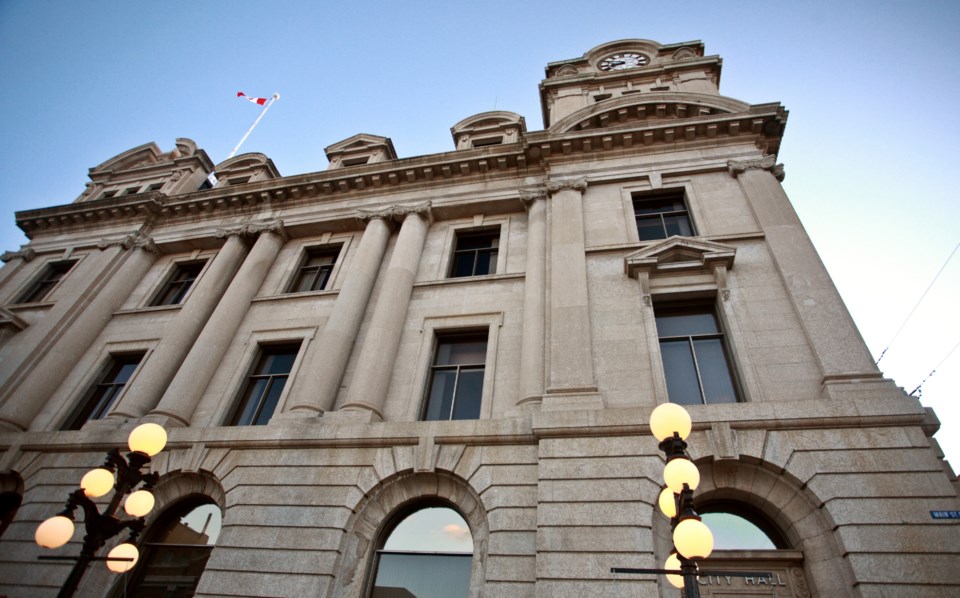The pandemic’s effects have hit city hall’s pocketbook, as revenues were down and expenses were up during the second quarter of this year, documents show.
City hall took steps in late March and early April to “flatten the curve” by shutting down municipally-owned buildings and sporting venues. Municipal officials then watched from April to June as most revenues from these sources dropped while expenses increased, as officials ensured that municipal services were still provided during the shut-down.
The effects of those decisions were revealed during the recent city council meeting, as city administration provided a financial report on all second-quarter activities during those three months. Council voted 6-1 to accept the report; Coun. Brian Swanson was opposed.
Overall, the municipality reported revenues of $41.8 million during the first six months of this year, compared to $36.9 million during the same time last year. Revenue was ahead of 2019, primarily due to the provincial government advancing revenue-sharing money to communities during the pandemic.
Revenues down
Several revenue categories saw large declines in revenue from April to June, a change that city administration noticed during that time, said Brian Acker, director of finance.
Revenue from the collection of municipal taxes was down by roughly $7.3 million compared to the same time in 2019. This is because council waived all penalties and surcharges on taxes. City administration is uncertain about the collection of actual tax revenue once the penalty-free period expires at the end of September.
From Jan. 1 to June 30, city hall collected $28.3 million in municipal taxation.
Income for licensing and permits dropped to $532,406, compared to $734,257 during the same time last year, Acker said. Most of this decline is due to less income from parking meter receipts and building permits.
The amount of revenue for fines and penalties dropped compared to the first half of 2019 — $395,856 versus $815,698 — as the municipality is now receiving only a fraction of the proceeds from the Automated Speed Enforcement (ASE) camera program, he continued. The main reason is the provincial government changed its policy around how much revenue communities with speed cameras receive.
“In a given year, we would see a net contribution of $500,000 to the city. This year it will be a little over $100,000,” Acker added.
The other decline in this category was due to city hall discontinuing parking meter penalties in April.
Revenue for interest and tax penalties came in at $84,355, which was down compared to $385,099 during the same six months last year. This was due to a reduction in interest rates in the city’s bank accounts and because city hall waived penalties and surcharges on taxes through Sept. 30.
The recreation services department saw a decrease in revenue of roughly $400,000 over the same time frame in 2019 due to the closure of recreational venues, Acker said. This means revenues declined to $903,610 from $1.3 million.
Revenue for provincial grants and subsidies increased by more than $6 million compared to 2019, as the provincial government provided the municipality with all of its revenue-sharing grants in June. Normally city hall receives this money throughout the year.
Regular transit revenues decline by $50,000 compared to 2019 since council waived transit fees. Expenses, though, increased by $278,000 in the administration area due to the timing of the annual equipment reserve contribution of $278,000.
Expenses up
Expenses in the public works department decreased by 31 per cent to $1.5 million compared to $2.3 million during the same time last year, Acker said. This decrease is mainly due to a timing issue with entries related to utilities.
Snow operations also saw a decrease of $125,000 compared to 2019.
Expenses in the parks and recreation department jumped by $640,000 to $4.9 million compared to $4.3 million during the same time last year. These expenses were related to the increased funding to Mosaic Place, along with providing the Moose Jaw Public Library with its second-half payment in June rather than July.
The next regular council meeting is Monday, Aug. 24.




